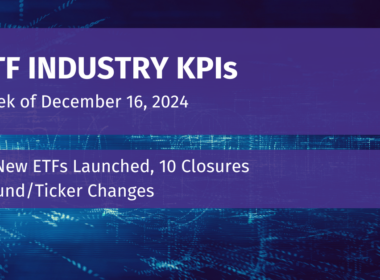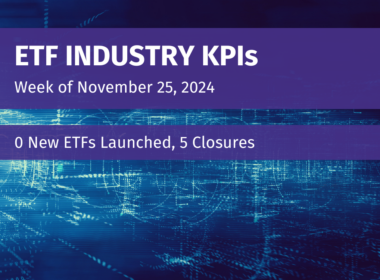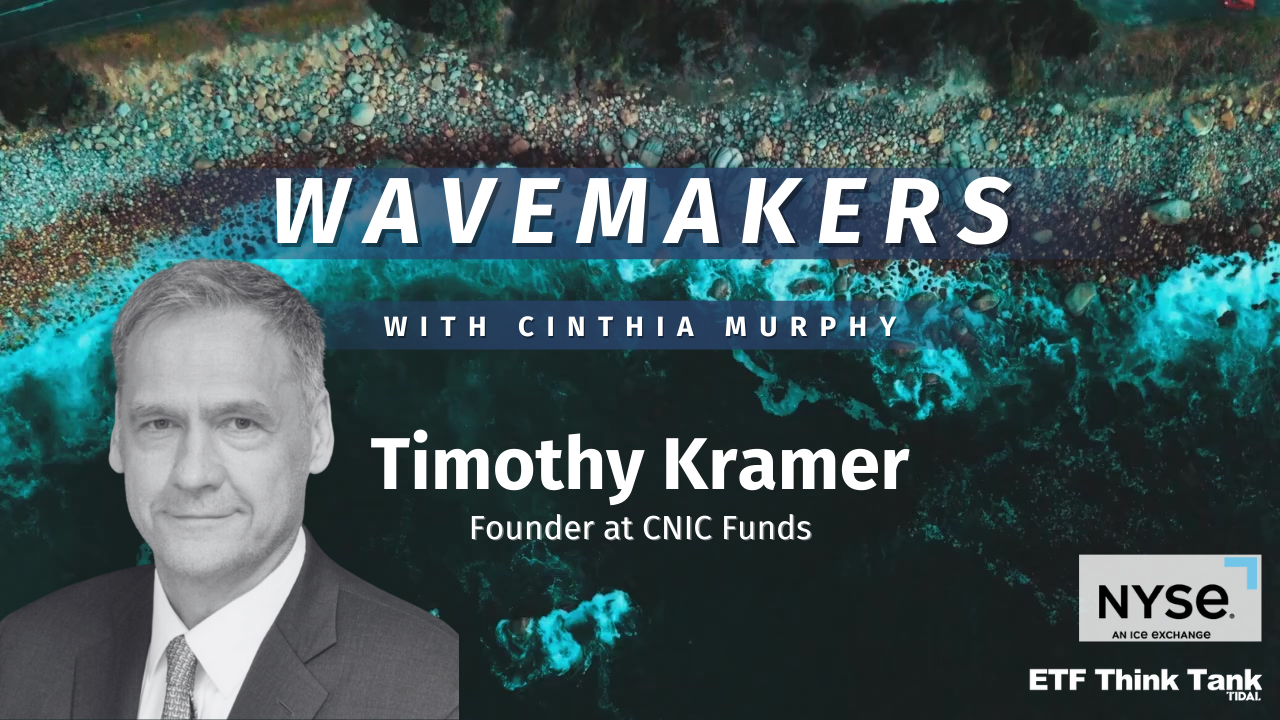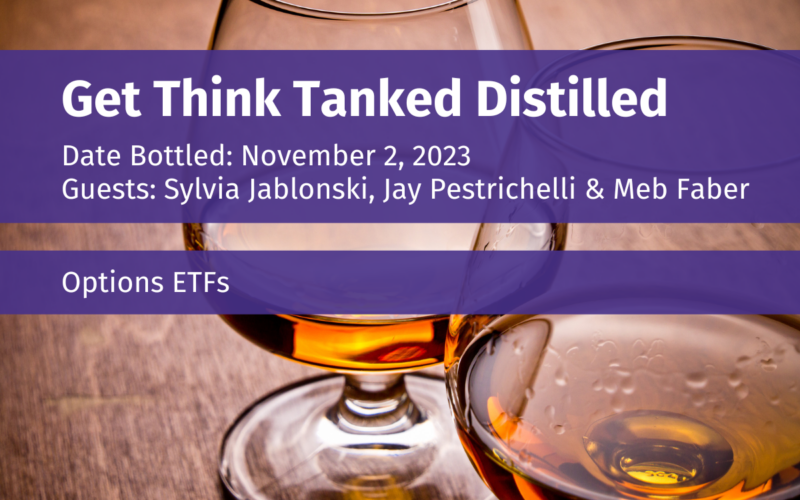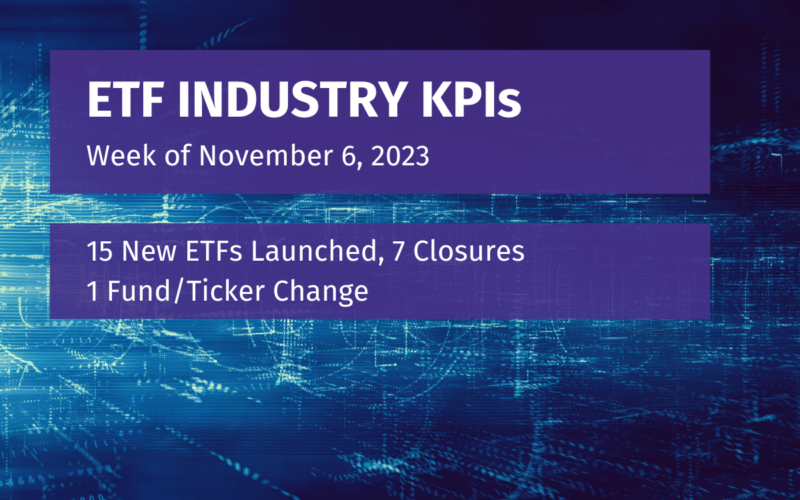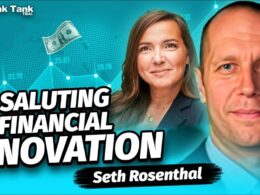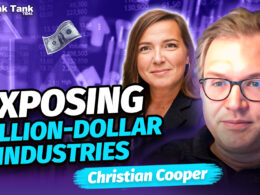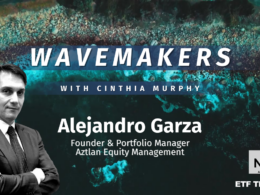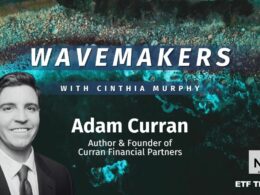ETF Think Tank’s Head of Research Cinthia Murphy hosts a series about innovation, disruption and entrepreneurship in the ETF industry told first-hand by those who are leading the effort: ETF providers.
Our guest this week is Timothy Kramer, founder and CEO of CNIC Funds.
In this episode, Tim tells us that the ETF business offers many lessons to newcomers:
- Electricity is such an important commodity and yet no one had explored it as an investment theme. There’s still white space in the ETF industry.
- ESG investing faces a “bifurcated” crowd between those eager to adopt and those staying completely out.
- Clean, simple messaging and nailing down that initial big investment (seed) are crucial in an ETF journey.
Read more and see the full transcript:
Follow ETF Think Tank on Social
Twitter: https://twitter.com/ETFThinkTank
LinkedIn: https://www.linkedin.com/company/the-etf-industry-think-tank-innovation-lab/
Facebook: https://www.facebook.com/ETFThinkTank
Connect with Timothy Kramer
LinkedIn: https://www.linkedin.com/in/timothy-kramer/
Website: https://www.cnicfunds.com/
Investors should consider the investment objectives, risks, charges and expenses carefully before investing. For a prospectus or summary prospectus with this and other information about the Fund, please call (855) 495-1500 or visit our website at https://www.cnicfundsetfs.com/ . Read the prospectus or summary prospectus carefully before investing.
The fund is new and has limited operating history to judge.
Energy Sector Risk. The energy sector is a major emitter of greenhouse gases, its activities may significantly impact the supply and demand of emissions allowances.
Rolling Futures Contract Risk: The Fund will invest in and have exposure to futures contracts and is subject to risks related to “rolling” them. Rolling occurs when the Fund closes out of a futures contract as it nears its expiration and replaces it with a contract that has a later expiration.
Carbon Allowance Futures Contracts Risk. The value of carbon allowance futures at settlement is determined by reference to the spot price of eligible carbon allowances to be delivered. The price for carbon allowance futures contracts is based on a number of factors, including the supply of and the demand for carbon allowance futures contracts. Market conditions and expectations, position limits, collateral requirements, and other factors each can impact the supply of and demand for carbon allowance futures contracts. The price for carbon allowance futures contracts is also based on the supply of and the demand for carbon allowances. The continued growth of carbon allowances will require increased usage as a means of accounting for greenhouse gas emissions. Even if growth in carbon allowances continues in the near or medium-term, there is no assurance that the carbon allowance usage will continue to grow over the long-term. A contraction in the use of carbon allowances may result in a lack of liquidity, increased volatility and a possible reduction in the price of carbon allowances and carbon allowance futures contracts. This is a relatively new market that is still developing and may be subject to periods of illiquidity, changes in regulations, and/or global economic issues. These factors could impact the number of allowances the Fund can buy and sell and the actual price of those allowances.
Contango and Backwardation Risk: The Index and thus the Fund’s rolling strategy involves the replacement of shorter dated futures contracts with longer-dated futures contracts. The value of the Index (and the NAV of the Fund) may be adversely affected by the cost of rolling positions forward where prices of the futures contracts with later expiration dates are higher than those with earlier expiration dates would create a negative contango “roll yield.” By contrast, if the prices of the futures contracts with later expiration dates are lower than the prices of futures contracts with earlier expiration dates, it would create a positive backwardation “roll yield.” In addition, the Fund will incur exchange and brokerage costs to effect the rolling of futures contracts.
The ICE U.S. Carbon Neutral Power Index (ICECNPI) is the first index to track the broad U.S. electricity market along with the carbon allowances associated with electricity generation.
Environmental, social, and governance (ESG) investing is used to screen investments based on corporate policies and to encourage companies to act responsibly.
SFDR Article 8 products, also known as light green products, promote investments or projects with positive environmental or social qualities, or a combination of such characteristics, as long as the investments are made in enterprises that adhere to sound governance practices.
The CNIC ICE U.S. Carbon Neutral Power Futures Index ETF is distributed by Foreside Fund Services, LLC.
All disclosures included in video.
Powered by Toroso Investments in partnership with NYSE.
Copyright © 2023 Toroso Investments, LLC. All rights reserved.


